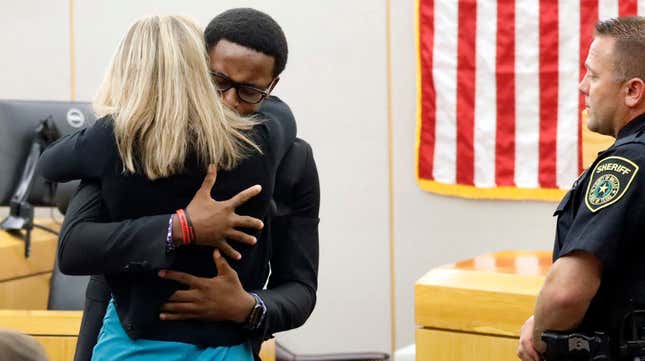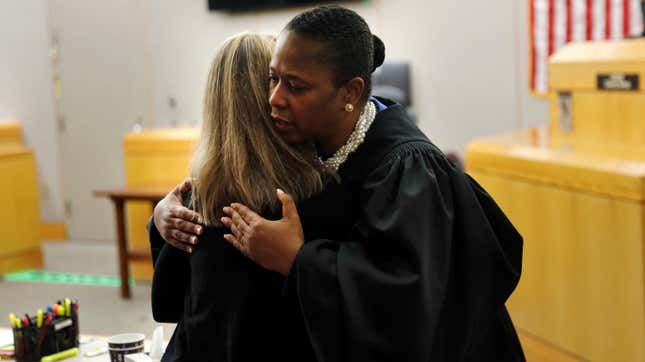The Perverse Spectacle of Black Forgiveness
Latest

The guilty verdict passed down to Amber Guyger—the former Dallas police officer who shot and killed her 26-year-old neighbor Botham Jean in his apartment after mistaking it for her own—should have been cathartic. One doesn’t have to be a supporter for the carceral state to at least feel a sense of relief that yet another white cop didn’t kill an unarmed black person and get away with it. But any feeling of justice was swiftly doused by the a few brief moments after the verdict, and the fetishization that soon followed.
After Guyger was sentenced to 10 years in prison, Jean’s brother, Brandt, spoke directly to her. “I forgive you, and I know if you go to God and ask him, he will forgive you,” Brandt said. “I love you just like anyone else… I personally want the best for you. I personally want the best for you. I don’t even want you to go to jail… because that’s exactly what Botham would want too.”
After finishing his statement, Brandt asked Judge Tammy Kemp if he could give Guyger a hug, which she permitted. Brandt stood up from the witness chair and made a beeline to Guyger, who sobbed in his arms.
America loves black people who forgive their tormenters.
It was an intense moment, but not the only one in which Guyger received comfort from an unlikely source: After the sentencing, Judge Kemp gave Guyger a bible, prayed with her, and embraced her.
-

-

-

-

-

-

-

-

-

-

-

-

-

-

-

-

-

-

-

-

-

-

-

-

-

-

-

-

-

-

-

-

-

-

-

-

-

-

-

-









































